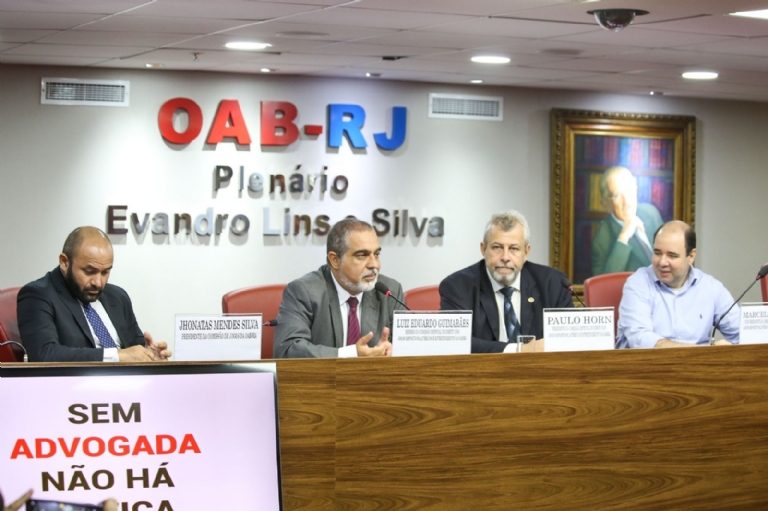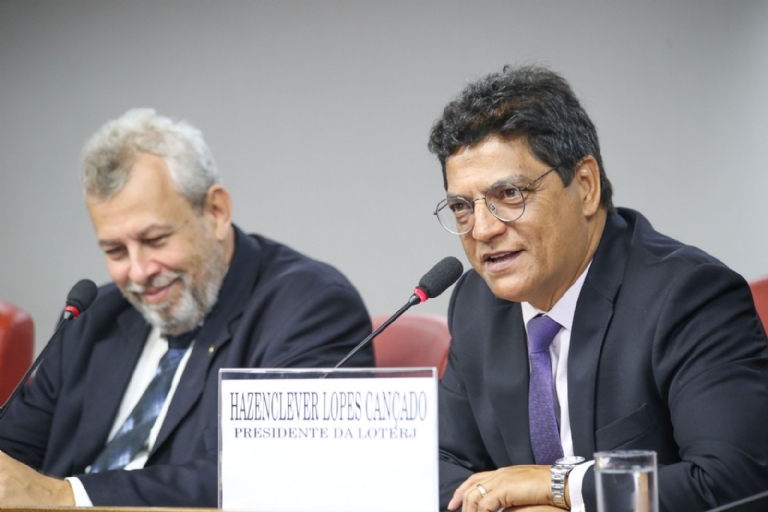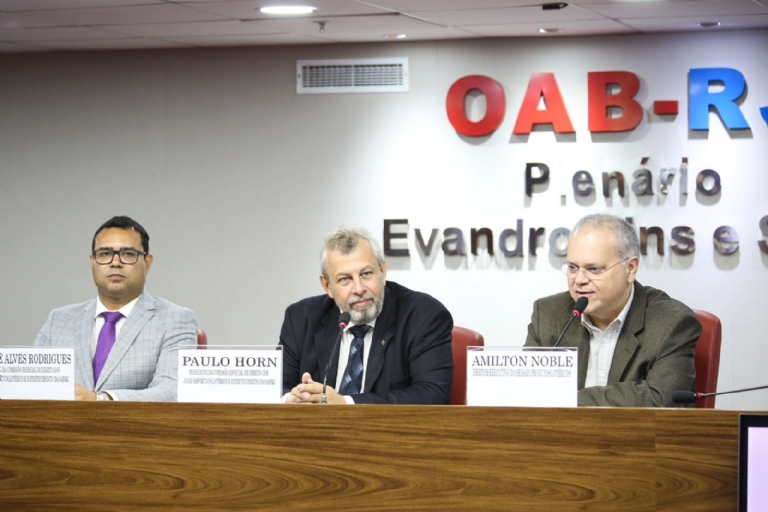

The opening of the event was led by the president and vice-president of the commission, Paulo Horn and Marcelo Corrêa, as well as members Filipe Alves, who is also the director of the Institute of Sports Management (IGE), and Leandro Pamplona.
According to Filipe Alves, it is essential to analyze the laws and jurisprudence when dealing with businesses involving lottery shops: "The lottery market is established and mature. Typically, this audience doesn't migrate as in other markets, there is no customer abandonment, and this generates profitability."
"Since these characteristics exist, it is important that we have a way to study lottery management not only from a legal perspective but also from an administrative point of view. To achieve this goal, we can no longer view businesses as they were done in the past, although the legal purpose of lotteries is the social aspect," noted the IGE director.

Regarding the provision of public services by state lotteries, the president of the Lottery of the State of Rio de Janeiro (Loterj), Hazenclever Lopes Cançado, recalled the regulations aimed at regulating gaming practices in the country.
"The strengthening and operation of all state lotteries are necessary for the regulation of the sector and the market. Loterj does not intend to be unanimous; we know that there are differing opinions, and they are part of the maturation process to operate in this area. The gaming and lottery market is very dynamic. For me, Loterj reflects the culture and passion of Rio de Janeiro residents for sports, games, and lotteries," said the Loterj manager.
"Today, we are once again discussing the possibility of a future that never arrives, with the market always on the verge of regulation, where we have Provisional Measure 1,182, 2023, and Bill 3,626, also from 2023, pending in the Federal Senate. Even with ADPFs 492 and 493 giving us peace of mind to operate in the market, it is still not enough to operate in an autonomous agency like Loterj transparently, democratically, and in a republican manner, as was done at the forefront in the largest state lottery in the country," added Lopes Cançado.

The presentations of the guests focused on the activities of state lotteries in the current scenario of uncertainty. Among the highlighted points were the role of the Supreme Federal Court in providing legal security for new businesses, normative competence for sports betting: what is a general norm and what is a specific norm in Law 13,756, 2018, and promotion to boost social development in Brazil.
The speakers at the event included the Executive Director of Hebara Produtos Lotéricos, Amilton Noble; a member of the Special Commission on Sports Betting, Lottery, and Entertainment Law of OABRJ, Luiz Eduardo Guimarães; lawyer Rafael Biasi; the president of the OABMA Games Commission, Jhonatas Mendes Silva; and the chief legal advisor of Loterj, Juliana de Albuquerque.

"After the STF decision, the legal uncertainty for state lotteries is minimal. Today, the current market scenario shows that the decisions made back then have followed the right path. We fought so hard to have strong state lotteries. The worst scenario is that of the state of São Paulo, for example. With 45 million inhabitants and more than 640 municipalities, state lotteries cannot stand still for three years. This is bad for operators and for society as a whole," Noble commented.
According to the Executive Director of Hebara Produtos Lotéricos, states have specific opportunities for action. "I see the states as a great opportunity, and in a 'gray' market scenario, without a governance model, it cannot function. It is necessary to understand that public treatment is different from private treatment. So, I congratulate OABRJ for providing this open forum to discuss lotteries," the executive said.
Source: OAB / RJ